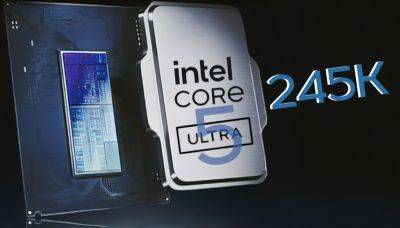Intel Core Ultra 7 265K “Arrow Lake” CPU Pictured, Up To 5% Faster 14700K In CPU-z Benchmark Leak
Intel's Core Ultra 7 265K "Arrow Lake" CPU has been pictured and we also get to see a brand new benchmark leak within the CPU-z test.
Intel's Core Ultra 7 265K "Arrow Lake" CPU Shows Little Performance Gains In CPU-z Benchmark Leak
The Intel Core Ultra 7 265KF will be the second fastest Arrow Lake CPU within the Core Ultra 200K Desktop lineup. The chip will feature 20 cores, 20 threads, a base clock of 3.9 GHz, and boost clocks of up to 5.50 GHz. It will also carry 33 MB of L3 cache and feature a 125W (PL1) TDP. Recent reports suggest that the chip will ship with 177W (Default PL2) and 250W (Performance PL2) modes which users will be able to set manually.
Related Story Intel Core Ultra 200V “Lunar Lake” Launched: CPU, GPU & AI Leadership Over Qualcomm & AMD, Much Better Battery Life
- Core Ultra 7 265K - 20 Cores / 20 Threads / 3.9 Base/5.5 Boost / 33 MB Cache / 125W PL1
- Core i7-14700K - 20 Cores / 28 Threads / 3.4 Base/5.5 Boost / 33 MB Cache / 125W PL1
This specific sample that leaked at Baidu Forums (via HXL) was a QS sample with B0 stepping and there is no word on what motherboard, power limits, or memory configuration it was running with. The CPU can be seen boosting to 5.2 GHz across the P-Cores and 4.6 GHz across the E-Cores.
The HWiNFO readings don't show 5.5 GHz clocks on any of the cores which might mean that this is still not the final chip I checked my chip and it shows at least one or two cores boosting above 5.5 GHz using the default baseline profile.
However, since these are the final all-core boost speeds, it could also mean that the Core Ultra 7 265K CPU was running in a multi-core workload while this specific HWiNFO window was opened up. HWiNFO also lists the chip as an "Intel 20A" process part but it should be N3B since that's what Arrow Lake "Core Ultra 200" Desktop CPUs are going to be made on.
With that said, the Intel Core Ultra 7 265K scored 885 points in the single-core test & 15,709 points in the multi-core tests. The single-core performance







